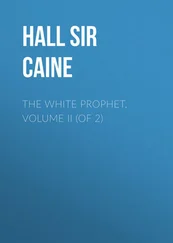“Thirdly, the matter on which I must counsel you touches you and your family closely, since I, your kinsman, am bound by ties of blood and friendship to the accused, his father and his entire line.” Charles then went on to recall that his father had concluded an alliance with the late Duke of Alençon, that he himself had been supported by the Duke and his vassals in the struggle against Burgundy, that an Alençon had died gloriously in the service of the realm on the field of Agincourt. While he spoke he was well aware that these were nothing but empty phrases; he knew only too well that old Alençon had never sought anything except his own advantage.
He tried another tack and dwelt on all those acts of Alençon’s which could be looked upon as exercises of friendship and chivalry. He ransacked his memory to leave nothing unsaid that would place his son-in-law and the latter’s father in the most favorable light possible. He besought the King to weigh good and evil carefully against each other and if he found that evil tipped the scales, to be merciful.
“For inasmuch as you are God’s deputy, you must follow his example: ‘You will do as I have done’, He said, and ‘As you have judged, so will you be judged.’
“I have the following advice to give you in this matter: in my opinion when we think of saving Alençon’s life we must think of both his body and his soul. God has said, ‘Nolo mortem peccatoris, I do not want the sinner to die.’ So you too cannot desire Alençon’s death. Because his actions show that his common sense has failed him, and if he should now be put to death without the opportunity to amend his life and purify his soul, then all those who had demanded his execution would have neglected to give him that last chance which is every sinner’s due. It is a greater affliction and torment to sit in prison for years than to die suddenly, for then one is delivered from earthly suffering. I know whereof I speak, because when I was a prisoner in England, I often wished that I had been slain at Agincourt.
“Therefore I counsel you for the sake of the security of the Kingdom to keep the Duke in safe custody, in whatever manner you deem best, my lord. It seems to me also eminently fair that you should have the right to dispose of his lands and possessions, but I think that you should provide within reason for his wife and children. It is written, ‘One may not wreak vengeance upon the innocent.’ I implore you as a father to look after those who must now consider themselves orphans. Then it seems to me that you ought not to forget his servants and followers who bore no guilt in what occurred. Care for them, now that they have lost their livelihood. I declare before God, before you, my lord, and before all those assembled here, that I have spoken according to my honor and conscience, to serve the interests of the realm. At all times I would gladly, if that became necessary, put aside all my responsibilities and devote all my energies, to the best of my knowledge and ability, however scanty, to serve those interests. I have finished.”
The King adjourned the hearing. It was obvious that he was extremely displeased.
In the following days it was no secret from Charles that his advice had not been received with favor. He could not help noticing to his dismay and regret that he was now viewed with the same dislike and suspicion that was felt toward Burgundy and the Dauphin. He noticed that he was being shunned; he knew that behind his back people were being told to keep away from him. And he learned that he had aroused the King’s anger. Alençon’s chances for clemency had not been increased by his appeal.
Suddenly Richmont, Duke of Brittany, appeared at Vendome. What had put Charles in a bad light did not damage the King’s former favorite and collaborator. Before long it was proclaimed at the meeting that the King “as a result of the petition made to Us by Our most beloved and cherished cousin the Duke of Brittany, uncle of the aforementioned Alençon” had resolved to change the sentence of death to confinement in a fortress. Charles d’Orléans returned to Blois.
Life in Blois flowed on from day to day in peace and benevolence. Charles read or wrote in the quiet library, sought and found fulfilment in his wife’s company — they spoke together about things which interested them or sat side by side in companionable silence, she crocheting with gold thread, he with a book which actually he scarcely read — and diverted himself with his little daughter in the nursery, in the courtyard or the flower garden outside the walls. Little Marie was the apple of his eye; she was nearly three years old, swift of foot and swifter still of comprehension. He could not get enough of her small, clear voice, her dignified little lady manners. He gave her little psalm-books illuminated with miniatures, small paternosters decorated with red and gold beads, a little purse with tiny gold pieces to wear on her girdle.
When he and his wife left Blois to visit neighboring towns and castles, they took their child with them; Mademoiselle’s flushed little face glowed like a rose against the black garments of the older couple. She was allowed to witness the solemn ceremonies in Orléans when, at the King’s command, the Maid’s honor was restored; the people of the region along the Loire, who had never ceased to love Jeanne and to honor her memory, moved in procession with burning candles, green branches and colorful banners to the bridge over which she had ridden in triumph into Orléans thirty years before.
Some time later a feast was given by the city in honor of little Marie d’Orléans: from her father’s arms she watched the people dancing in the open air, and wine and spiced cake being set out for everyone on long tables in the market square. The Duke ordered the release of all prisoners from the city’s dungeons. Among the pale people wrapped in filthy rags, shouting with excitement as they shoved their way out through the prison gates, was François Villon, who had been imprisoned some years before for a misdemeanor. With his usual directness he went immediately to pay his respects to Charles, who with a nod and an ironic smile pressed his hand and invited him to join the celebrations. Villon’s sharp eyes saw at once where the Duke’s affection and interest lay: in order to ensure continued favor for himself, Villon composed a song praising little Marie for her dignified, regal demeanor and comparing the three-year-old to the wise Cassandra, the beautiful Echo, the chaste Lucretia, the noble Dido. Charles was seized by a fit of laughter at this, but he was touched nonetheless, and gave Villon a generous reward and the privilege of coming and going as he pleased in the ducal residence.
About the middle of July in the year 1461 couriers brought to Blois the news that the King was dead. He had spent the last years of his life in the secluded castle of Mehun-sur-Yevre, hidden away in its neglected rooms, suspicious and fearful of everyone who approached him. Finally, afraid that he was about to be poisoned, he refused to take food. He died of starvation and exhaustion.
Since the Dauphin had not yet returned from Flanders, the task of directing funeral arrangements fell to Charles. He traveled with a large retinue to Mehun to carry out this obligation. The King’s body was placed upon a bier, conveyed to Paris with appropriate pomp, and there, after the mass for the dead, buried in the abbey of Saint-Denis.
On the thirty-first of August the new King, Louis, by the Grace of God the eleventh of that name, rode into Paris accompanied by Burgundy, his son and the Duke of Cleves. Charles was not part of the glittering procession which followed the King through the city: he wished to make known by his absence that he no longer wanted a place in court, that he desired to withdraw from public life. From a window of his Hotel des Tournelles he looked down upon the endless file of richly attired lords and their followers. He saw familiar faces: Dunois, Angouléme, Bourbon, Etampes and many others; under a canopy rode King Louis wearing white garments, but with a strange little black bonnet on his head, as though he wanted to mock the coronation ceremony. His face was as pointed, his eyes as malicious, as ever. He looked about sharply at the people along the way who were cheering him half-heartedly.
Читать дальше












